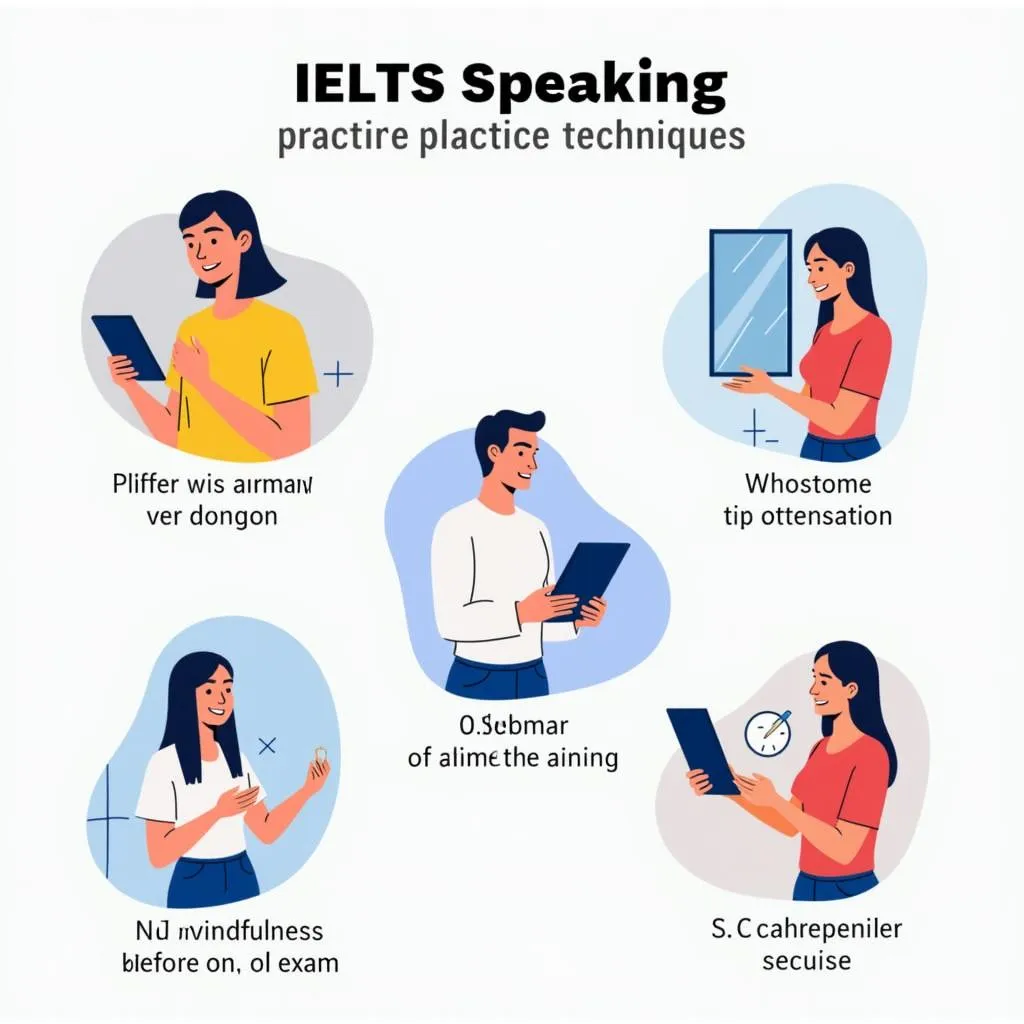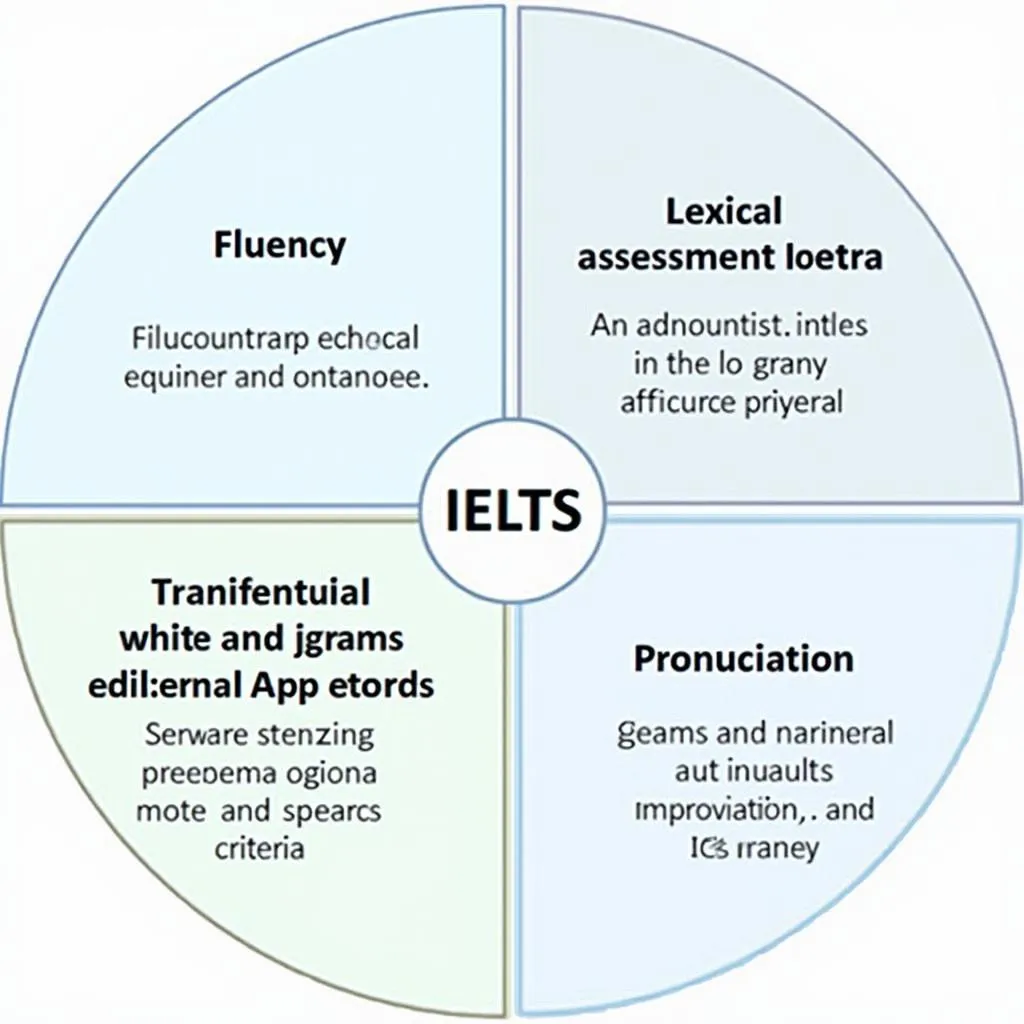Understanding the Importance of Body Language in IELTS Speaking
Body language plays a crucial role in the IELTS Speaking test, contributing significantly to your overall performance and score. Effective non-verbal communication can enhance your confidence, engage the examiner, and convey your ideas more convincingly. In this comprehensive guide, we’ll explore essential body language tips to help you excel in your IELTS Speaking exam.
Nội dung bài viết
- Understanding the Importance of Body Language in IELTS Speaking
- The Impact of Body Language on Your IELTS Score
- Key Body Language Tips for IELTS Speaking Success
- 1. Maintain Good Posture
- 2. Make Appropriate Eye Contact
- 3. Use Natural Hand Gestures
- 4. Facial Expressions Matter
- 5. Control Nervous Habits
- Practicing Body Language for IELTS Speaking
- Important Considerations
- Next Steps: Integrating Body Language into Your IELTS Preparation
The Impact of Body Language on Your IELTS Score
While your verbal responses are the primary focus of the IELTS Speaking test, your body language can influence the examiner’s perception of your communication skills. Positive body language can:
- Demonstrate confidence and ease
- Show engagement and enthusiasm
- Reinforce your spoken message
- Create a favorable impression on the examiner
 Importance of body language in IELTS Speaking
Importance of body language in IELTS Speaking
Key Body Language Tips for IELTS Speaking Success
1. Maintain Good Posture
Sitting or standing with good posture is essential for projecting confidence and attentiveness during your IELTS Speaking test.
Tips for good posture:
- Keep your back straight and shoulders relaxed
- Avoid slouching or leaning too far back in your chair
- Plant your feet firmly on the ground if sitting
- Stand tall with your weight evenly distributed if standing
Good posture not only looks professional but also helps you breathe better and speak more clearly.
2. Make Appropriate Eye Contact
Eye contact is a powerful tool for building rapport with the examiner and demonstrating confidence in your responses.
Guidelines for eye contact:
- Maintain natural, steady eye contact with the examiner
- Aim for 60-70% eye contact during your responses
- Look away briefly when thinking or pausing, then re-establish eye contact
- Avoid staring intensely or constantly looking down
Remember, cultural norms for eye contact may vary, so adjust accordingly while still maintaining a connection with the examiner.
 Appropriate eye contact in IELTS Speaking
Appropriate eye contact in IELTS Speaking
3. Use Natural Hand Gestures
Incorporating natural hand gestures can enhance your verbal communication and make your responses more engaging.
Effective use of hand gestures:
- Use open palm gestures to appear honest and approachable
- Emphasize key points with subtle hand movements
- Keep gestures within the area between your chest and waist
- Avoid excessive or distracting movements
Remember, gestures should complement your speech, not overpower it. Use them sparingly and naturally to illustrate your points.
4. Facial Expressions Matter
Your facial expressions can convey enthusiasm, interest, and emotional engagement with the topic you’re discussing.
Tips for positive facial expressions:
- Smile naturally when appropriate, especially during the greeting
- Show interest by raising eyebrows slightly when listening
- Maintain a neutral, pleasant expression when not speaking
- Allow your face to reflect the emotion of your speech content
Authentic facial expressions can make your responses more convincing and help you connect with the examiner on a more personal level.
5. Control Nervous Habits
Nervous habits can be distracting and may negatively impact the examiner’s perception of your confidence and fluency.
Common nervous habits to avoid:
- Fidgeting with hands or objects
- Touching your face or hair repeatedly
- Tapping feet or fingers
- Swaying or rocking in your chair
If you’re prone to nervous habits, practice awareness and develop strategies to redirect that energy into more positive body language.
 Positive vs. negative body language in IELTS Speaking
Positive vs. negative body language in IELTS Speaking
Practicing Body Language for IELTS Speaking
Improving your body language for the IELTS Speaking test requires conscious effort and practice. Here are some effective ways to enhance your non-verbal communication skills:
-
Record yourself: Use a camera to record your practice sessions. This allows you to observe your body language and identify areas for improvement.
-
Mirror practice: Stand in front of a mirror and practice your responses while focusing on your posture, gestures, and facial expressions.
-
Role-play with a partner: Ask a friend or tutor to act as the examiner while you practice your responses and body language.
-
Mindfulness exercises: Incorporate mindfulness techniques to increase your awareness of your body and reduce nervous tension.
-
Visualize success: Before your test, visualize yourself communicating confidently with positive body language.
Important Considerations
While working on your body language, keep these points in mind:
- Authenticity is key: Your body language should feel natural and comfortable, not forced or exaggerated.
- Cultural sensitivity: Be aware of cultural differences in body language, especially if you’re taking the test in a country different from your own.
- Balance is crucial: Strive for a balance between appearing confident and approachable.
- Focus on content: While body language is important, remember that the quality of your verbal responses is still the primary focus of the IELTS Speaking test.
 IELTS Speaking practice techniques
IELTS Speaking practice techniques
Next Steps: Integrating Body Language into Your IELTS Preparation
Now that you understand the importance of body language in the IELTS Speaking test, it’s time to incorporate these tips into your preparation routine:
- Evaluate your current body language habits and identify areas for improvement.
- Set specific goals for enhancing your non-verbal communication skills.
- Integrate body language practice into your regular IELTS Speaking preparation sessions.
- Seek feedback from others on your body language and overall presentation.
- Gradually increase the duration of your practice sessions to build stamina and consistency.
Remember, mastering positive body language takes time and practice. Be patient with yourself and celebrate small improvements along the way. With consistent effort, you’ll develop the confidence and non-verbal skills necessary to excel in the IELTS Speaking test.
By focusing on both your verbal responses and body language, you’ll present a more polished and confident image to the examiner, potentially boosting your IELTS Speaking score and overall performance.


